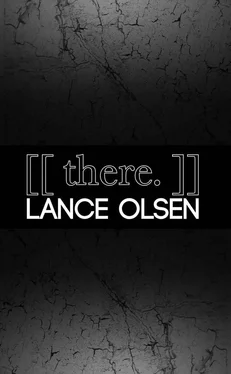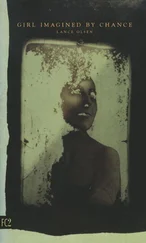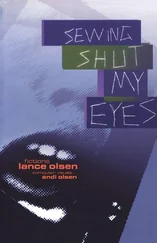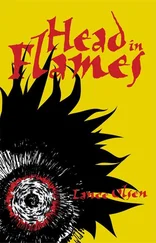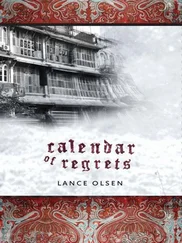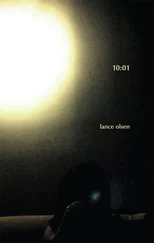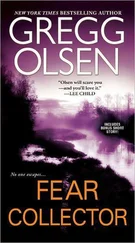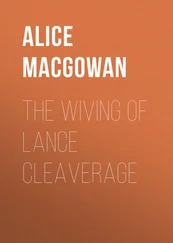:::: The second Witkin photograph: a stuffed monkey slipping artificial flowers into (or perhaps out of) the unskulled top of a woman’s untorsoed head, its eyes closed, atilt on some dark surface.
Let’s call that surface a table.
Let’s not.
:::: You will never have seen such a lush, green city, promised a friend several weeks ago. Just you wait.
:::: Excuse my dust.
Reads Dorothy Parker’s epitaph.
:::: One of my fellow fellows at the Academy, who had lived in East Berlin for years when younger, expressing her heartfelt disappointment that, when she petitioned to find out after the Wall came down, she was told the Stasi possessed no secret file on her.
:::: One morning just under a month before we leave, Andi shows up in the living room with three packing boxes and begins to collect the winter clothes and books we no longer need.
That moment, and we’re traveling again.
:::: During the Cold War, a friend explains to me over dinner at Mao Thai in the gentrification creep of Prenzlauer Berg, those living in West Berlin were exempt from the Federal Republic’s compulsory military service, and so young radical artists, writers, and musicians spewed into the city.
Being a brief parable about how Berlin, a country subsisting inside another country, has happened for more than 100 years.
With, of course, a handful of notable exceptions.
:::: I want to enjoy my death, Beckett once wrote.
Presumably with some irony.
:::: Out of Print .
Being what Raymond Federman, whose parents and sisters were murdered in Auschwitz, along with more than a million others (including, of course, Kafka’s sister), wanted his epitaph to read.
:::: Rebecca Solnit, noch einmal: Walking is an indicator species for various kinds of freedom and pleasures: free time, free and alluring space, and unhindered bodies.
:::: I would add, too, a simultaneous understanding, at least in the form of some abstract proposition, about how abridged each item on Solnit’s list is, how it is precisely that understanding that infuses each instant of travel with its idiosyncratic radiance.
:::: And so, as our last month at the Academy unfurls around us, everything becomes as shimmery as it had on that first drizzly day our taxi crawled through the heavy black iron gates toward the Italianate villa in which I’m now sitting at my desk.
:::: Standing on a corner, waiting for the red Ampelmann to turn into a green Ampelmann, my German friend grows impatient and steps out into the street, telling me over his shoulder:
Come. In Berlin traffic lights are just a suggestion.
:::: I lost all my hair two weeks back, Rochelle emails me. One of the things they talked about was the need to keep the head covered at all times and I ended up buying a large assortment of what they call chemo turbans, some of them reasonably stylish, to wear around the house. I mean, it’s a perfectly good wig, and I’m sure was once a very nice beaver or groundhog or whatever it was, but I hate it. The hair of my nightmares.
:::: The head. Not my head.
:::: As if she had already begun becoming something other than her own body, like the women in those Witkin photographs.
Which, needless to say, she had.
:::: Re: the wig: the perhaps forced — yet essential — humor.
:::: People flooding onto the streets from their winter nests to salute the weather, the sun, the blank skies, the bird chitter: onto the benches, grass swathes, monkey bars in the park along the lake, into the woods surrounding the city, into the squares and animated biergartens, the flea markets, the small tables outside cafés and bistros, reading novels and newspapers, scrolling down smartphone screens, visiting with friends, pushing strollers, holding hands, biking, window shopping, faces raised to absorb the rays streaming down, and it occurs to you you’re negotiating a different city that just happens to share the same name with the one you landed in more than a fourth of a year ago.
In less than a month you will be part of exactly none of this.
:::: Witkin’s goal slant-rhyming with Viktor Shklovsky’s: The technique of art being to make objects unfamiliar , to make forms difficult, to increase the difficulty and length of perception.
:::: O. attends a reading by and interview with William Vollmann at the Kino Babylon, chats and has his photograph snapped with the author afterwards at a literary gathering at the café next door. But it is only when examining that photograph the next day that O. notices what Vollmann’s t-shirt — an Indian warrior on horseback, rifle raised high above his head — says:
My heroes have always killed cowboys.
:::: Witkin’s goal slant-rhyming with Gaston Bachelard’s: Art, then, is an increase of life, a sort of competition of surprises that stimulates our consciousness and keeps it from becoming somnolent.
:::: A friend recounting how, as the East Germans came across the Glienicke Bridge in November 1989, they were met by West Germans offering bananas — fruit the East Germans had seen on TV, but never tasted.
How bright yellow banana peels covered the road.
:::: Because at the confluence of reading and writing demanding texts, which is to say when traveling, we will always arrive at curiosity, relearn what movement feels like, concentration, which is to say how to be more like that set of fluctuations we mean when we say being [[there.]]
:::: Three and a half million people, at least 5000 of them homeless. 2500 public recreational and green spaces. The prices low, but the wages low, too — ranking beneath those in Copenhagen, New York, Munich, London, Frankfurt, and more than a dozen other cities. Ten million tourists annually. Artists everywhere, but few buyers. 18 percent woodlands. 18 percent unemployed. An average of 29 vacation days. 721 bikes per 1000 inhabitants. One in five children with at least one drug-addicted parent. 11.5 percent recreational areas. 61 intentional murders. 5 percent farming. 1960 robberies in public spaces last year.
All run on an economy of carnage tourism for those who need to relive the Second World War in a way one no longer can in, say, London.
Let’s call that Berlin.
Let’s not.
:::: If the facts don’t fit the theory, change the facts.
Encouraged Einstein, who, while on a visit to the States in February 1933 a few weeks after that loud stubby man with the goofy mustache called himself Chancellor, decided not to return to his homeland.
:::: Sailboats a flock of bobbing seagulls scattered across the denim-blue lake.
:::: Frank Berberich, publisher and editor of Lettre International , a big friendly gray bear who borrowed Friedrich Nietzsche’s mustache, explaining over espressos in his office in Kreuzberg, a Jörg Immendorff behind his desk floating at the corner of my vision, the distance between the PR associated with Berlin and boots on the ground.
When I ask about the possibility spaces by definition inherent in university students, he tells me a listless melancholia has replaced a latent rage in the young.
:::: Their inability, Frank says, to invent a language that allows them to think beyond capitalism.
:::: Because O. doesn’t know what he ate, or if it was in fact something he ate, or rather if it was something he touched instead, but the outcome is he divides the next 24 hours fairly evenly between boking it and a hyperbolic case of the trots, fever, fatigue, and stabbing abdominal pains. He wants to curl in bed, go to sleep, wake up when it’s over, but can’t find a single comfortable position. His stomach is killing him. Somewhere in the protracted dimness he leads a Ph.D. defense via Skype, remembers at one point asking the student on the other side of the screen: How does one write the contemporary?
Читать дальше
